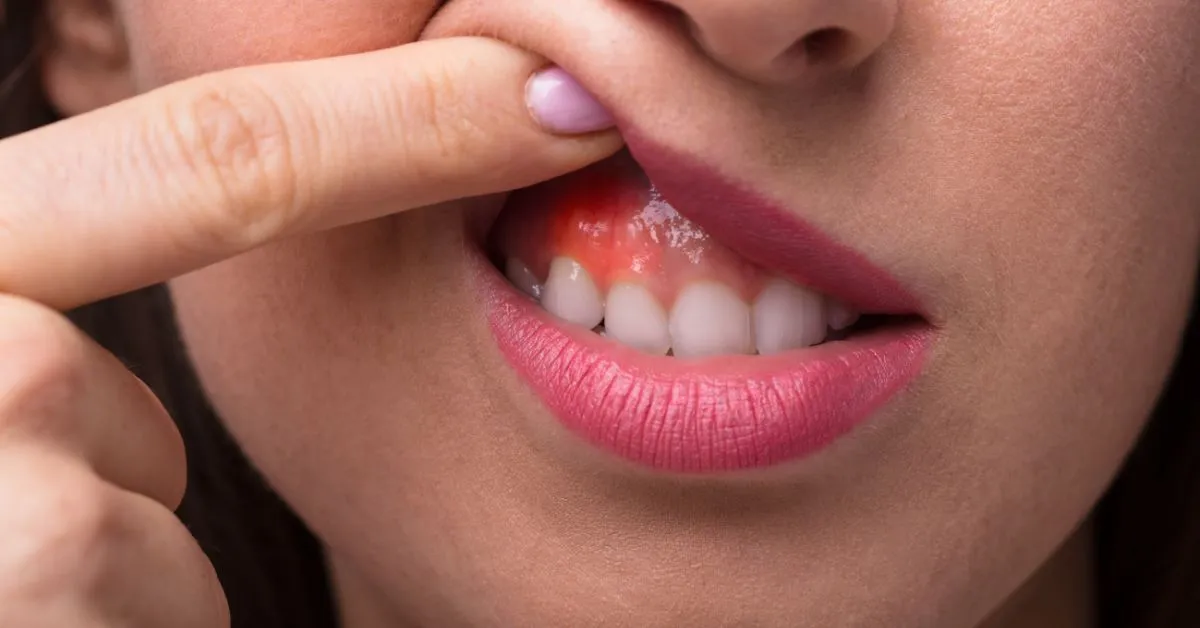How to Manage Gum Swelling - Rouse hill smile dental care
Gum swelling can turn a simple smile into a painful experience. Whether it’s a mild puffiness or a throbbing, tender gum line, swollen gums often signal that something in your oral health needs attention. The good news is that gum swelling is manageable and in many cases, preventable when you know what’s causing it and how to treat it promptly.
From poor oral hygiene and plaque buildup to hormonal changes or an early sign of infection, gum swelling rarely appears without a reason. And while it might seem harmless at first, ignoring it can lead to gum disease or even tooth loss. The key is to identify the triggers early, relieve the discomfort, and get professional guidance when needed.
So if you’ve noticed gum swelling and aren’t sure what to do next, you’re in the right place. Let’s explore the practical steps to ease the pain, heal your gums, and keep your smile healthy with help from a trusted rouse hill dentist.

Understand the Root Causes of Gum Swelling
Swollen gums can develop for many reasons, and recognising the cause is the first step toward relief. Common triggers include:
● Plaque and Tartar Build-Up: Poor brushing or flossing habits allow bacteria to thrive, leading to gingivitis.
● Hormonal Changes: Pregnancy, menstruation, or menopause can make gums more Sensitive.
● Vitamin Deficiencies: Low levels of vitamin C or other nutrients may cause Inflammation.
● Infections: Viral or fungal infections, as well as untreated cavities, can irritate gum Tissue.
● Medication Side Effects: Certain prescriptions can cause gum overgrowth or swelling.
Knowing why your gums are swollen helps you choose the right remedy. And if the cause isn’t obvious, a professional evaluation is essential.
Immediate Home Care for Mild Gum Swelling
If you experience mild gum swelling, some simple steps can provide quick relief:
● Rinse with Warm Salt Water: A natural antiseptic that reduces bacteria and soothes tenderness.
● Maintain Gentle Brushing and Flossing: Don’t skip your oral care routine, but use a soft-bristled toothbrush.
● Stay Hydrated: Drinking water helps wash away bacteria and prevents dry mouth.
● Apply a Cold Compress: Hold it to the outside of your cheek to reduce inflammation.
But these are temporary measures. Persistent swelling or pain requires a visit to our rouse hill dentist for proper diagnosis and treatment.
Professional Dental Treatments
When gum swelling doesn’t subside, a professional cleaning or treatment plan is crucial. At Rouse Hill Smiles Dental care, your dentist can:
● Perform a thorough cleaning to remove plaque and tartar.
● Prescribe antibiotics for bacterial infections.
● Recommend medicated mouth rinses or special toothpaste.
● Address underlying issues such as cavities or abscesses.
Early intervention not only reduces discomfort but also prevents serious conditions like periodontitis.
Prevention Is the Best Cure
Consistent oral care keeps gum swelling at bay. Make these habits part of your daily routine:
● Brush twice daily with fluoride toothpaste.
● Floss once a day to remove hidden plaque.
● Eat a balanced diet rich in vitamins and minerals.
● Schedule regular check-ups with our rouse hill dentist.
Yet prevention isn’t just about cleaning; it’s about noticing subtle changes and acting quickly. Managing gum swelling begins with understanding its causes, practicing good oral hygiene, and seeking professional care when needed. And while home remedies can provide temporary relief, a comprehensive exam by a skilled rouse hill dentist ensures your gums and your smile stay healthy for the long term.
Schedule a visit with Rouse Hill Smiles Dental Care today. Our friendly team offers personalised treatments to ease gum swelling, restore comfort, and keep your smile bright. Call us or book online to take the first step toward healthier gums and lasting confidence.
FAQ
What causes gum swelling?
Gum swelling can result from plaque buildup, infections, hormonal changes, or even certainmedications. Nutritional deficiencies and ill-fitting dental appliances may also play a role.
Can swollen gums heal on their own?
Mild swelling from irritation or a small injury may improve with good oral hygiene and salt-waterrinses. But if swelling lasts more than a few days, it’s best to consult a dentist.
When should I see a dentist for swollen gums?
See a rouse hill dentist if swelling persists beyond a week, is accompanied by bleeding, orcauses significant pain. Prompt care can prevent complications.
Is gum swelling always a sign of gum disease?
Not always. While gum disease is a common cause, swelling may also be linked to hormonalchanges, medication side effects, or simple irritation. Only a dental professional can confirm the underlying reason.
Our Principal Dentist
Dr. Teena and the Rouse Hill Smiles team are dedicated to providing patients of all ages with the highest quality of care.

Dr. Teena Bali
Dentist
Quick Contacts
- Rouse Hill Plaza G07-G08, 2-4 Aberdour Avenue Rouse Hill, NSW 2155
- enquiries@rousehillsmilesdentalcare.com.au
- (02) 8320 0548
- Copyright 2026 Rouse Hill Smiles Dental Care







